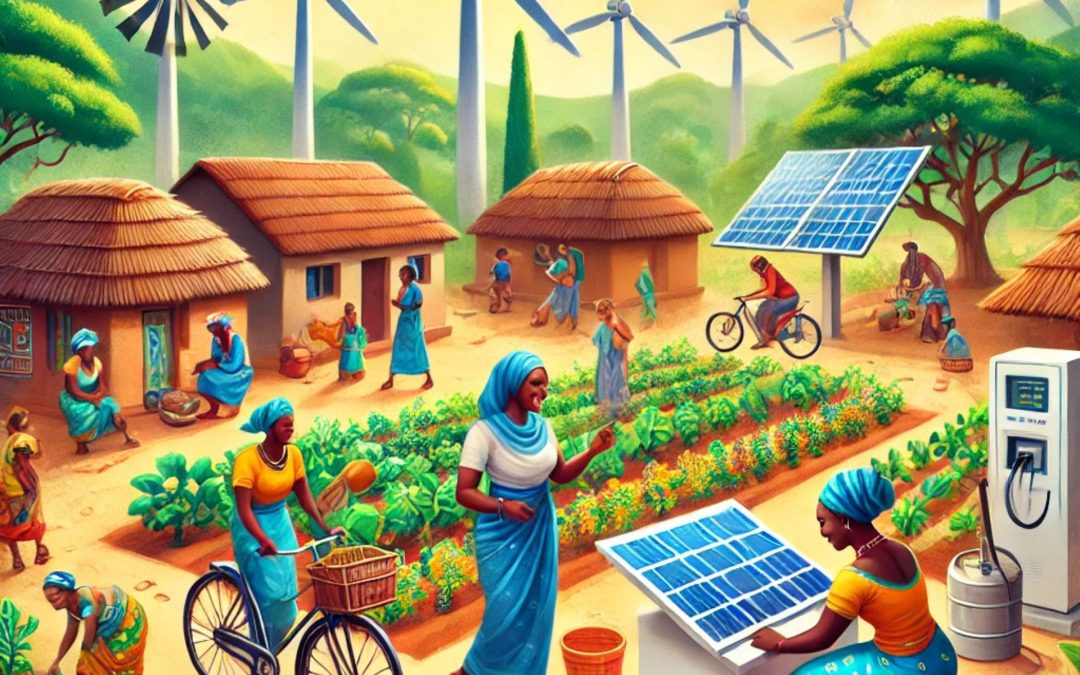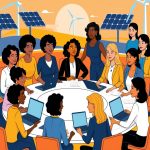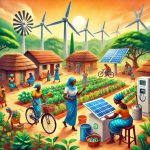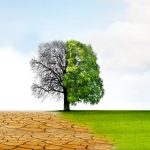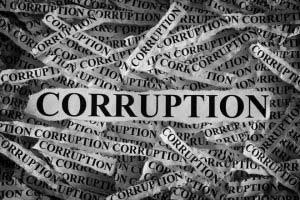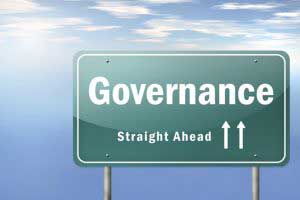Renewable energy can significantly improve the lives of rural women by providing access to clean energy, creating jobs, fostering social change, and boosting economic growth. To ensure that rural women benefit from these opportunities, innovative solutions are needed, that specifically address their needs and empower them economically.
One such solution is to promote women entrepreneurs in the clean energy sector. By offering tailored training programmes, entrepreneurship development and green job training, it is possible to overcome barriers and create pathways for women to start and grow businesses in the renewable energy industry. Examples of successful initiatives include ENERGIA’s Women Entrepreneurs programme, which trains and supports women in Africa to establish clean energy businesses; and the Digital Empowerment Foundation in India, which provides specialized digital skills training to women in the energy sector.
Initiatives like the “Rural Women Light Up Africa” project in Tanzania train mature women as Barefoot Solar Engineers. After six months of training in India, the women return to their villages to electrify households with solar lighting units and maintain them for five years. This not only brings sustainable energy to communities but also empowers women as active participants in village development and role models for their peers and children. Consulting with women on the design of sustainable energy solutions ensures they are tailored to women’s needs and used by other women. For example, in Rwanda, women’s involvement in cookstove design, distribution and marketing helped address their specific requirements and led to increased adoption.
Many women in rural areas depend solely on rain-fed agriculture, which can restrict productivity and lead to significant post-harvest losses, given the lack of storage and short-term preservation. Innovative solutions that address these challenges include the establishment of women-led micro-entrepreneurship programmes, such as those supported by USAID’s South Asia Regional Energy Partnership (SAREP). These initiatives provide training in clean energy technologies, enabling women to install biogas units and solar panels to power cold storage facilities, which not only enhance energy access but also create new income-generating opportunities.
Going beyond energy provision and focusing on the productive use of decentralised renewable energy can improve women’s socio-economic participation through skilling, equipment financing, and market linkages for their products. This enables women to generate income and reinvest in their families and communities. To truly empower rural women through renewable energy, all stakeholders must collaborate and include women at the centre of energy expansion. Targeted gender budgeting, disaggregated data collection and gender sensitisation of policymakers are crucial for development. By integrating women into the renewable energy sector and providing them with the necessary skills and resources, these solutions not only improve agricultural productivity but also foster economic empowerment and resilience against climate change.

